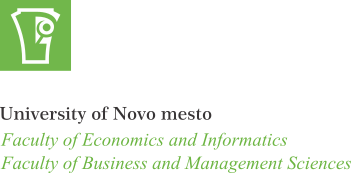Intergenerational Learning and Knowledge
Keywords:
organisation, intergenerational differences, intergenerational learning, intergenerational knowledgeAbstract
Contemporary European companies are aware of various demographic factors such as ageing of the population and lengthening of the average life expectancy, which results in lengthening of one's work activity as well as in multigenerational workplace. Accordingly, organisations need to efficiently adapt to intergenerational differences, integrate all generations of employees into modern processes and technologies and provide them with education and training opportunities. A successful intergenerational cooperation is the key prerequisite of effective workplace relationships and the stability of each organisation. The aim of this research paper is to define the characteristics of various generations, intergenerational communication, and the challenges associated with the transfer of knowledge and experience in the workplace. The empirical part explores the attitude of employees towards intergenerational differences in the workplace, their willingness to adjust to constant changes and challenges associated with new technologies, as well as their readiness to learn and cooperate with one another, share their knowledge with younger generations, and acquire knowledge from the latter. The purpose of the research is to determine the willingness of employees and their superiors for intergenerational learning and cooperation within the organisation.
References
Brečko, D. (2008). Medgeneracijsko komuniciranje: v iskanju medgeneracijskega sožitja. HRM 23, št. 6, str. 48-56.
Brečko, D. (2010). Medgeneracijski HRM v slovenskih organizacijah. HRM 8, št. 38, str. 56-62.
Dimovski, V. (2011). Age management. HRM, 9, št. 42, str. 37-40.
Giancola, F. (2006). The generation gap: more myth than reality, Human Resource Planning, 29(4), str. 32-37.
Jager, J. (2013). Akcijska raziskava v okviru projekta Old and Young (TOY). Spletna stran: http://media.wix.com/ugd/cfe827_ebe92251550e426da1f5c3bfbb25930e.pdf. [Citirano: 7. 1. 2017 ob 19:00 uri].
Kavčič, A. (2011). Generacijska raznolikost zaposlenih in njihovo medsebojno komuniciranje. Spletna stran: http://www.ediplome.fmp.si/Kavcic_Alenka_20110221.pdf, [Citirano: 2. 1. 2017 ob 21:00 uri].
Lagacé, M. et al. (2015). Canadian government's framing of ageing at work and older workers: echoing positive ageing models, Work, 52(3), str. 597-604.
Novak, M. (2007). Medgeneracijske razlike in vloga HRM. HRM 5, št. 19, str. 30-34.
Sánchez, M. in Kaplan, M. (2014). Intergenerational learning in higher education: making the case for multigenerational classrooms, Educational Gerontology, 40(7), str. 473-485.
Downloads
Published
How to Cite
Issue
Section
License
Copyright (c) 2022 Journal of Economic and Business Sciences

This work is licensed under a Creative Commons Attribution 4.0 International License.




